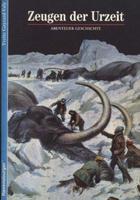
photo credits: Wikimedia Commons
The history of science covers the development of science from ancient times to the present. It encompasses all three major branches of science: natural, social, and formal.Science's earliest roots can be traced to Ancient Egypt and Mesopotamia around 3000 to 1200 BCE. These civilizations' contributions to mathematics, astronomy, and medicine influenced later Greek natural philosophy of classical antiquity, wherein formal attempts were made to provide explanations of events in the physical world based on natural causes. After the fall of the Western Roman Empire, knowledge of Greek conceptions of the world deteriorated in Latin-speaking Western Europe during the early centuries (400 to 1000 CE) of the Middle Ages, but continued to thrive in the Greek-speaking Eastern Roman (or Byzantine) Empire. Aided by translations of Greek texts, the Hellenistic worldview was preserved and absorbed into the Arabic-speaking Muslim world during the Islamic Golden Age. The recovery and assimilation of Greek works and Islamic inquiries into Western Europe from the 10th to 13th century revived the learning of natural philosophy in the West.Natural philosophy was transformed during the Scientific Revolution in 16th- to 17th-century Europe, as new ideas and discoveries departed from previous Greek conceptions and traditions. The New Science that emerged was more mechanistic in its worldview, more integrated with mathematics, and more reliable and open as its knowledge was based on a newly defined scientific method. More "revolutions" in subsequent centuries soon followed. The chemical revolution of the 18th century, for instance, introduced new quantitative methods and measurements for chemistry. In the 19th century, new perspectives regarding the conservation of energy, age of Earth, and evolution came into focus. And in the 20th century, new discoveries in genetics and physics laid the foundations for new sub disciplines such as molecular biology and particle physics. Moreover, industrial and military concerns as well as the increasing complexity of new research endeavors ushered in the era of "big science," particularly after World War II. Source: Wikipedia (en)
Works in the genre history of science 39
- The Structure of Scientific Revolutions
- Longitude
- The Sleepwalkers
 De proprietatibus rerum
De proprietatibus rerum- Buonasera ovunque voi siate
- Against Method
- History of science in Germany
- The Age of Wonder
- The Continuing Revolution
- The Oxford Companion to the History of Modern Science
- Megalithic routes
- The Beginnings of Western Science
 Les Atomes
Les Atomes- Rosalind Franklin and DNA
- L'Évolution de la mécanique
- Rosalind Franklin: The Dark Lady of DNA
- Ephesos. 100 Jahre österreichische Forschungen
- 100 Jahre Österreichisches Archäologisches Institut
- The Archaeologist In-Between. Olov Janse, 1892-1985
- Humanister i offentligheten. Kunskapens aktörer och arenor under efterkrigstiden
 Registry and general relation of mines of the Crown of Castile
Registry and general relation of mines of the Crown of Castile- Robert Boyle and seventeenth-century chemistry
- Начало и вечность жизни
- Stalin and the Scientists
- Vetenskapen som försvann? Svensk rasforskning efter 1935
- The Scientific Outlook / Bertrand Russell
- A history of science / William Cecil Dampier
- Los cimientos de la geología: la Comisión del Mapa Geológico de España (1849-1910)
- Det villrådiga samhället. Kungliga Vetenskapsakademiens politiska och ekonomiska ideologi, 1739–1792.
- Den gröna vändningen. En ny kunskapshistoria om miljöfrågornas genombrott under efterkrigstiden.
- Francis Bacon
- Les fossiles - empreinte des mondes disparus
- Regenwald
- Storia del pensiero scientifico
- I grandi della scienza
- 9770036808130
- Anthropology - why it matters
- Geschichte der Biologie
- Festschrift aus Anlass der Beendigung der gärungstechnologischen Lehre und Forschung am Standort Berlin, Invalidenstraße 42
Genre - wd:Q201486















